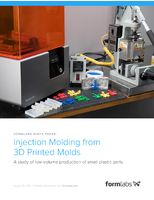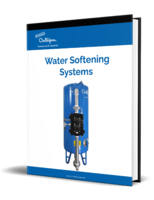ASTM Standard helps healthcare workers transfer patient data.
Press Release Summary:
The Office of the National Coordinator for Health Information Technology, part of U.S. Department of Health and Human Services, has included an ASTM standard as part of its formal certification criteria for electronic health record technologies. ASTM E2369 outlines a way to create flexible XML documents that contain most relevant and timely healthcare information about a patient and to send these records electronically from one caregiver to another and to patients.
Original Press Release:
U.S. Health and Human Services Includes ASTM Continuity of Care Record Standard in Final Rule for Health Information Technology
ASTM E2369 Provides Means for Healthcare Workers to Collect and Transfer Patient Data
W. CONSHOHOCKEN, Pa., -The Office of the National Coordinator for Health Information Technology (ONC), part of the United States Department of Health and Human Services, has included an ASTM International standard as part of its formal certification criteria for electronic health record (EHR) technologies. The standard, ASTM E2369, Specification for Continuity of Care Record (CCR), was developed by Subcommittee E31.25 on Healthcare Data Management, Security, Confidentiality and Privacy, part of ASTM International Committee E31 on Healthcare Informatics.
ASTM E2369 outlines a way to create flexible XML documents that contain the most relevant and timely healthcare information about a patient and to send these records electronically from one caregiver to another and to patients in the hope of creating better coordination and quality of care. The CCR is a core data set of the most relevant administrative, demographic and clinical information facts about a patient's healthcare. The CCR data set includes information about health status, as well as details concerning insurance, advance directives, care documentation and the patient's care plan.
"In its response to comments in the Final Rule, the ONC made clear that the industry values the ASTM CCR standard because it is perceived as easy to use and easy to implement, that there is widespread industry adoption of the CCR, and that some healthcare providers prefer the CCR standard over derivative, similar standards," says David C. Kibbe, principal, The Kibbe Group LLC, and chair, E31. "As physicians increase their 'meaningful use of certified EHR technology,' I am confident that the CCR's usage will increase, particularly as a means of providing patients with their clinical summaries and for machine-to-machine exchange of quality measures for health care improvement."
The nation's healthcare system is undergoing a transformation in an effort to improve quality, safety and efficiency of care related to information exchanges of EHR technology. To help facilitate this vision, the Health Information Technology for Economic and Clinical Health Act, or the "HITECH Act," established programs under Medicare and Medicaid to provide incentive payments for the "meaningful use" of certified EHR technology.
The Department of Health and Human Services issued their final rule to complete the adoption of an initial set of standards, implementation specifications, and certification criteria, and to more closely align these elements with final meaningful use stage 1 objectives and measures. ASTM E2369 is referenced as part of the patient summary certification criteria that can be used to help meet the requirements for achieving meaningful use stage 1.
To purchase ASTM standards, visit www.astm.org and search by the standard designation number, or contact ASTM Customer Relations (phone: 610-832-9585; service@astm.org).
ASTM International is one of the largest international standards development and delivery systems in the world. ASTM International meets the World Trade Organization (WTO) principles for the development of international standards: coherence, consensus, development dimension, effectiveness, impartiality, openness, relevance and transparency. ASTM standards are accepted and used in research and development, product testing, quality systems and commercial transactions.




